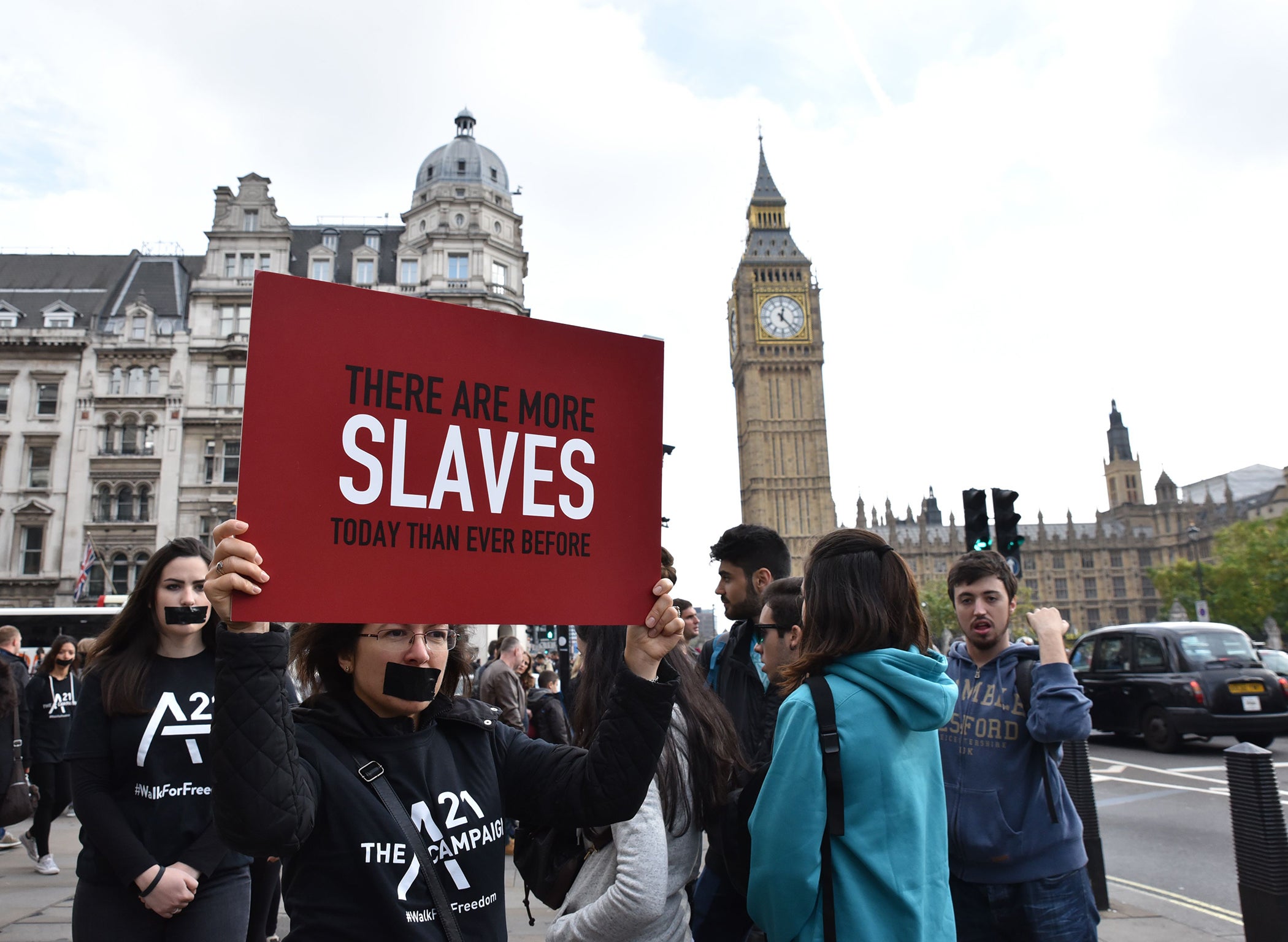More than a third of UK businesses are failing to combat modern slavery, study shows
Findings have prompted calls for harsher punishments for organisations that don’t comply

Your support helps us to tell the story
From reproductive rights to climate change to Big Tech, The Independent is on the ground when the story is developing. Whether it's investigating the financials of Elon Musk's pro-Trump PAC or producing our latest documentary, 'The A Word', which shines a light on the American women fighting for reproductive rights, we know how important it is to parse out the facts from the messaging.
At such a critical moment in US history, we need reporters on the ground. Your donation allows us to keep sending journalists to speak to both sides of the story.
The Independent is trusted by Americans across the entire political spectrum. And unlike many other quality news outlets, we choose not to lock Americans out of our reporting and analysis with paywalls. We believe quality journalism should be available to everyone, paid for by those who can afford it.
Your support makes all the difference.More than a third of UK businesses are flouting their responsibilities to combat modern slavery, new data shows, amid mounting concerns that there are far more slavery victims in Britain than previously thought.
A new survey by the Chartered Institute of Procurement and Supply (CIPS) shows that 34 per cent of organisations are failing to outline the actions they are taking to combat slavery in their supply chains, while almost four in 10 (37 per cent) of supply chain managers admit to not having read the government guidance on modern slavery.
The failings amount to a breach in the companies’ requirements under the Modern Slavery Act, and have prompted calls for stricter policies and harsher punishments for organisations that don’t comply.
In a sign that modern slavery is rampant in UK supply chains, the survey of 1,288 supply chain professionals showed that one in 10 UK businesses found evidence of modern slavery in their supply chains – marking a rise of six percentage points since the Act came into force in 2015.
The findings also revealed that only 45 per cent of organisations have provided any training to their staff to help them spot modern slavery, while just 42 per cent have mapped their supply chains to better understand their risks.
As a result, only 6 per cent of supply chain managers under the Act’s remit are absolutely certain there is no slavery in their supply chain.
The Modern Slavery Act requires all businesses that operate within the UK and with a turnover of more than £36m to produce a yearly statement outlining the actions they have taken to combat slavery in their supply chains. Currently, there are no punitive consequences for non-compliance.
It comes after a major report revealed there were far more modern slavery victims in the UK than previously thought, with figures from the National Crime Agency (NCA) showing that there are 300 live modern slavery police operations currently in progress.
Cath Hill, CIPS director, described the figures as “shocking” and said the Government should adopt “stricter polices and harsher punishments” for businesses that are not compliant with the requirements of the Act.
“The results of our survey are shocking. Legislation that was designed to be world leading has fallen at the first hurdle: compliance. While awareness of modern slavery is becoming more widespread, we need to ensure that outrage turns into action,” she said.
“We can only ensure that people are protected from this appalling crime if there is a consequence for not doing so. At the moment, the Modern Slavery Act has great intent and some of its ambitions are being met.
“However, those working in the procurement and supply chain profession have told us that without stricter policies and harsher punishments for those who are not compliant with the Act, little will change.
“The Modern Slavery Act has set us on the right path but there is still a long way to go before we can say that we are actively eliminating modern slavery from supply chains.”
The Home Office has been contacted for comment.
Join our commenting forum
Join thought-provoking conversations, follow other Independent readers and see their replies
Comments